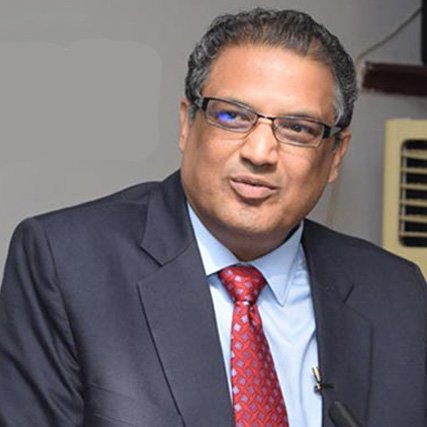After being trained in a religious background and right-wing environment, he first met the socialist Sheikh Muhammad Rashid and then came into contact with the Marxist Dr. Manzoor Ijaz, and had to revise his views on the left. Senior Vice Chairman of the People’s Party, Sheikh Muhammad Rashid, was living in a two-room house in Shadman. He started visiting Sheikh Rashid and his wife Shakeela Rashid along with his friend Tahir Chaudhry. Their honesty, sincerity and commitment impressed him a lot. In the last period of General Zia-ul-Haq’s era and the early days of the new democracy, he started to feel jealous after seeing their style and manners. The American ambassador comes to the house and sits down and he refuses to meet him because of his ideology and anti-American policies. When Benazir Bhutto appoints his wife as ambassador, he continues to fight at home for several days, saying that this is a political bribe. Aunty used to say that I did not marry Sheikh Rashid as a person, but I married the idea of socialism, which is embodied in the form of Sheikh Rashid.
When I started traveling to America, I met Dr. Manzoor Ijaz in the 90s, which turned into a family friendship. His patronage and kindness were always available. Just two months ago, my son went to his house in America to greet him and seek his prayers. We had a long conversation to express our best wishes. Dr. Manzoor Ijaz was also a practical and humane form of Marxist. A resident of Chak 60 Bridge, Sahiwal district, he could not even complete his PhD in Economics from an American university. He felt happy and comfortable speaking in the Punjabi accent of his village. Dr. Manzoor Ijaz became disabled due to polio in his childhood, but despite reaching his old age, he did not take help from anyone, nor did he ever spend a day without reading or writing. He was always busy doing something or the other. There were stairs between his house and his study in Virginia. Despite his disability, he would climb the stairs two or three times a day so that his desire for rest would not distract him from his educational and teaching pursuits.
Dr. Sahib was a true lover of Punjabi and especially the poetry of Waris Shah. The practical expression of his love was that he named his only son Waris. At home, he used to call his son Waris by the affectionate title of Dhidu, which was actually the affectionate name of Waris Shah’s hero. He was based in America, but his heart beat with Punjab and Punjabi. The last dream of his life was to establish Maloha Online University in the name of Maloha, the oldest name of Pakistan and Punjab. He had also agreed to give lectures at this university.
Dr. Manzoor Ijaz Theth was a native of Punjabi and his wife was from UP. The doctor spoke Punjabi and she Urdu, and that was how they spent their lives. Despite the difference in languages and customs, they lived a good life. The doctor became a Marxist in his childhood. He studied and taught philosophy at the Punjab University, but was expelled from the university and eventually from the country due to oppression by the students of the Islamic Jamiat. He settled in America, but there he established his own Pakistan and his own Punjab. His guest house was a refuge for people like us. If we stayed with him, we would benefit from the doctor’s knowledge of history, philosophy and language, enjoy his hospitality, chat, eat, drink and sleep – everything was available there.
Dr. Manzoor Ijaz was proud of being from the Indus Valley and the Sindhu Sapt. He considered the Maloha state, founded on the ancient civilizations of Harappa and Mohenjodaro, to be the most important part of his history. He considered the priest king, the dancer Sambarajan, the Neel Pari of Harappa, and the three-leafed Dhak Boti as symbols of his civilization and culture. Dr. Manzoor Ijaz had drunk Punjabi poetry, which is why he never considered himself a Punjabi nationalist. Rather, he considered himself an internationalist Punjabi. As long as his health was good, he would visit Pakistan every year and visit his village in Sindh and examine the political and economic conditions of Pakistan with his own eyes. He had a Sahiwal connection with my friend Munir Ahmed Khan because both of them were students of Sahiwal College. When Pervez Rashid and Javed Hashmi would sit down and listen to them, they would tell him stories of the ideological battles of the 60s. Mujeeb Shami, who also studied in Sahiwal, also had a special chat with him. Ship. When Dr. Manzoor Ijaz came to Pakistan, where Najam Hussain Syed’s gathering would be a hit, he would visit Punjabi bookstores, have conversations with poets, writers, and politicians, listen to the views of the youth, and then leave, he would comment in detail on the changing conditions of Pakistan every year. When the Punjabi scholar Zubair Ahmed informed him of Dr. Manzoor Ijaz’s passing, the window of his memories opened. The mark of my life was gone. Now who will remember Waris Shah and Bhagat Kabir sitting in Washington? Who is there who will tell the history of Baba Bulleh Shah’s social uprising through the stories of Maloha? Who will sing a melody of sympathy to the oppressed lower class? Who will soothe the heart with his kind words? Where is a sentence from Mard Qalandar and where are hundreds of flattering and sarcastic comments, where will Dr. Manzoor Ijaz come from now?
Whenever I had the chance to go to Washington, Dr. Manzoor Ijaz introduced me to American think tanks and everyone I wanted to meet regarding the history and politics of Pakistan, be it the “Viceroy” of Pakistan, Robert Oakley, or the “Party Over” who commented on Bhutto’s departure. Dr. Manzoor Ijaz’s presence in America was like a pillar of Pakistani wisdom, which was a forum for history, literature and politics. He used to organize a monthly meeting with the late Khalid Ahmed, Akmal Alimi, Shaheen Sehbai and other Pakistanis in which he would listen to and tell stories from guests coming from Pakistan. Dr. Manzoor Ijaz’s departure is the departure of a scholar from the world. May God never dim the light of knowledge he spread and may not only illuminate his grave with his poverty, but may his knowledge also light up the coming era.
 Colors
Colors  View Books
View Books 



